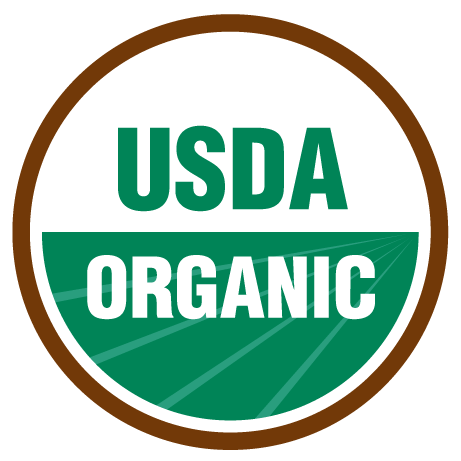
Dear Earth’s Enrichers

As you begin or continue your quest to a healthier living, you will or have already come across the products with the labels “all-natural” and “organic.” These labels, although they are both products that are meant for healthy living, are very different. It is important to know the differences between them. This is for many reasons:
- Lifestyle
- Beliefs
- Necessity or need
Also, for those of you that are new to the world of natural and organic skin care, the information can help you decide whether you’re team all-natural or team organic—there will be some of you who cheer for both teams.
Skin care products that are “all-natural” use ingredients that comes from natural resources. Basically, any resource that comes from nature, itself. They are minimally processed and do not contain any synthetic chemicals, yet some natural ingredients can be synthesized.
An example of this would be putting additional vitamins into a product that does naturally contain those vitamins. Let’s say for example vitamin E is synthetically created, and placed within a product. This product will have the benefits of vitamin E, but not the actual thing.
However, ingredients that are “organic” do not use natural synthetic replacements for natural products. They use the real natural deal derived from living organisms, water, and sea salt are not considered organic material because although it comes from natured it was not derived from a living organism. They also cannot be genetically modified (GMO’s) do not contain any chemical preservatives. This would include artificial flavors, etc.
There are carrying levels of organic products made with organic ingredients. A USDA certified product must contain at least 95% organic content; the company must also have its facilities, ingredients manufacturing procedures and packaging certified to make sure the process matches with the USDA requirements. A product can still be considered organic or contain organic materials, but basically without that USDA certification seal you are taking the company’s word for it. So, pay close attention to the labels and ingredients because it makes a difference.
A less restrictive level of “Organic Products” are those containing at least 70% organic content. These products can be described as being “made with organic ingredients” may and can contain synthetic chemicals, preservatives, or GMO. So, be careful and read what you use. You’ll be surprised at what you find sometimes.
As for lifestyle, beliefs, and necessity or need, these reasons contribute to helping you decide which team you’re on. If you don’t believe in the creation or use of genetically modified organism (like plants and/or food), then you may want to go the route of organic. If your skin does not “agree” with chemicals or synthetic ingredients and you don’t want to risk it with “all-natural,” you may want to go organic as well.
Lifestyle plays a big role in what you chose because this not only incorporates your needs/necessities but incorporates your accessibility or the amount of funds you are willing to extend towards all-natural and or organic skin care.
In some cases, you may find that organic skin care may be more expensive than all-natural skin care at the moment. Or that all-natural or organic skin care may still be too much. This is okay and understandable.
As we mentioned last week, companies are starting to realize that all-natural and organic skin care is what it needed. The rise of all-natural and organic skin care products has made accessibility to both worlds much easier. Now-a-days it’s becoming easier to not have to choose between the two. You can have both all-natural and organic, while looking out for the benefits you need for your skin.
The EE 411:
Organic Ingredients:
- Defined as coming from living biological matter like plants.
- Government regulated and certified
- Contains no artificial or chemical anything
- No GMO
- No synthetic natural replacements like synthetic vitamins
- Can be USDA certified
All- Natural Ingredients:
- Not regulated in skin care
- Cannot be USDA certified
- Can be altered and contain preservatives
- Can also contain perfumes and some chemical ingredients
- May be more affordable and offer more product options
There are other healthy living skin care categories out there, did you know? Although, they are sometimes incorporated into organic and all-natural skin care they are not always recognized as their own categories. Mostly because the products can’t always satisfy all the requirements of each group. Other skin care categories are Vegan and Cruelty-free.
Some products may be all-natural and/or organic but still test their products on animals which violates the cruelty-free rules. Cruelty-free means not testing their products on animals, or causing harm to animals in the development of the product.
Then, in the cases of vegan, some all-natural and organic skin care products use ingredients that come from animals and other living creatures. This means that the product may be totally organic, drawing from natural resources that come from living creatures. This violates the rules of being a vegan product. Vegan products contain no ingredients that come from living creatures.
EE’s products are an example of the new found access to all-natural, organic, non-gmo, cruelty-free, gluten-free (except Honey Granola), and vegan (except Honey Granola). Try some body bars that can give the experience of all these traits and see how it makes your skin feel.
Share with Us: Are you team all-natural, team organic, or team both? Why?
(This post was brought to you by Earth’s Enrichments. Similar posts can be found by visiting our Blog. More information about our company and products (USDA Certified Organic Soaps, Organic Bath Salts, Organic Sugar Scrubs, Organic Body Balms and Organic Lip Balms) can be found on our Website. Thank you Earth’s Enricher!)
